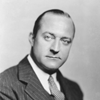Editor’s note: November 28, 1994, marks the 100th anniversary of the birth of Henry Hazlitt, renowned author of Economics in One Lesson and Founding Trustee of FEE.
In responding to the tributes of friends who had gathered for his 70th birthday celebration, Mr. Hazlitt issued a stirring challenge to defenders of freedom. Thirty years later, his words are even more appropriate:
I suppose most of you in this room have read that powerful book, George Orwell’s 1984. On the surface it is a profoundly depressing novel, but I was surprised to find myself strangely encouraged by it. I finally decided that this encouragement arose from one of the final scenes in it. The hero, Winston Smith, is presented as a rather ordinary man, an intelligent but not a brilliant man, and certainly not a courageous one. Winston Smith has been keeping a secret diary, in which he wrote: “Freedom is the freedom to say that two and two makes four.” Now this diary has been discovered by the Party. O’Brien, his inquisitor, is asking him questions. Winston Smith is Strapped to a board or a wheel, in such a way that O’Brien, by merely moving a lever, can inflict any amount of excruciating pain upon him (and explains to him just how much pain he can inflict upon him and just how easy it would be to break Smith’s backbone). O’Brien first inflicts a certain amount of not quite intolerable pain on Winston Smith. Then he holds up the four fingers of his left hand, and says, “How many fingers am I holding up?” Winston knows that the required answer is five. That’s the Party answer. But Winston can’t say anything else but four. So O’Brien moves the lever again, and inflicts still more agonizing pain upon him, and says, “Think again. How many fingers am I holding up?” Winston Smith says, “Four. Four. Four fingers.” Well, he finally capitulates, as you know, but not until he has put up a magnificent battle.
None of us is yet on the torture rack; we are not yet in jail; we’re getting various harassments and annoyances, but what we mainly risk is merely our popularity, the danger that we will be called nasty names. So, before we are in the position of Winston Smith, we can surely have enough courage to keep saying that two plus two equals four.
This is the duty that is laid upon us. We have a duty to speak even more clearly and courageously, to work harder, and to keep fighting this battle while the strength is still in us. But I can’t do better than to read the words of the great economist, the great thinker, the great writer, who honors me more than I can say by his presence here tonight, Ludwig von Mises. This is what he wrote in the final paragraph of his great book on socialism 40 years ago:
“Everyone carries a part of society on his shoulders; no one is relieved of his share of responsibility by others. And no one can find a safe way out for himself if society is sweeping towards destruction. Therefore, everyone, in his own interests, must thrust himself vigorously into the intellectual battle. None can stand aside with unconcern; the interests of everyone hang on the result. Whether he chooses or not, every man is drawn into the great historical struggle, the decisive battle into which our epoch has plunged us.”
Those words—uncannily prophetic words—were written in the early 1920s. Well, I haven’t any new message, any better message than that.
Even those of us who have reached and passed our 70th birthdays cannot afford to rest on our oars and spend the rest of our lives dozing in the Florida sun. The times call for courage. The times call for hard work. But if the demands are high, it is because the stakes are even higher. They are nothing less than the future of human liberty, which means the future of civilization.
—Henry Hazlitt (1894-1993)
To commemorate Mr. Hazlitt’s life and work, FEE has brought out new editions of several of his books. For further information, see this month’s Notes from FEE.
A Beacon
For what I suppose are millions of readers, Henry Hazlitt’s Economics in One Lesson continues to shine like a beacon in the dark night of liberal and statist nonsense. If the bureaucrats and politicians in Washington would just once ask Hazlitt’s basic question, “What will be the long-range consequences of this action?”, we might once again begin to have some hope for our nation’s future. Alas, we continue to learn that economic wisdom is the last thing—or one of the last things—we can expect from those who worship at the shrine of big government and bad economics. Whenever we chance upon a graduate of America’s schools who can read, we ought to consider placing in that youngster’s hands a copy of Hazlitt’s book. At least, this will give that student a fighting chance when he goes to do battle with the statists who reign supreme in what we still choose to call our colleges and universities.
—Ronald H. Nash

